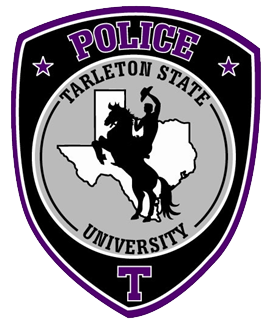Sexual assault standards changing with new generation

Tarleton police are re-evaluating education programs for sexual assault awareness in light of a recent rise in reports of acquaintance assault.
November 21, 2014
A recent increase in the number of sexual assaults on campus has made the Tarleton State University police rethink strategies used previously in dealing with such matters. Date and acquaintance rapes are becoming more common than those involving strangers, causing the university police officers to develop new protocols in prevention as well as handling survivor procedure.
“What we are seeing is that trends are not fitting the same guidelines as in previous assaults,” Lieutenant Al Allcon said. “More and more, we are seeing date and acquaintance rape situations rather than those made by strangers, so what we initially taught to students about prevention does not apply as much.”
With the recent assault, reported by police on Nov. 2, 2014, that took place on campus involving an acquaintance as well as the influence of alcohol, police are looking for possible alternative teaching methods to provide for students who may not find themselves in a typical assault situation.
“While the RAD classes do well for teaching women to defend themselves against stranger attacks, we are considering other courses that could help in settings involving a date or acquaintance or a situation involving alcohol or drug usage,” Allcon said.
RAD or Rape, Aggression, Defense classes, are a national program certified to teach women self-defense against potential attackers. Attendance on campus has been average with about 50 signing up, but many have expressed concern with dates and times.
“It has come to my attention that many women on campus would like to attend these course, but cannot find a meeting that would fit with their schedule,” Allcon said. “I have also received word that our satellite campuses would welcome a RAD course, but cannot attend the ones offered in Stephenville. We are hoping to train teachers for classes on the Ft. Worth and Waco campuses as well as find other methods of teaching prevention at all locations.”
Some ways Allcon has expressed for students to protect themselves from a situation involving a date or acquaintance rape are to have an understood agreement with their partner on what they consider consent, and if students choose to drink, they should have expectations with friends such as “if we come as a group, we leave as a group” and be consistent in upholding those expectations.
“Nationally, 85% of sexual assault reports involve significant alcohol or drug usage,” Allcon said. “While these measures can be taken to prevent a potential rape, we do not want to put a burden on a survivor that used such skills and they did not work.”
Even with the guidelines of sexual assault changing in the nation, Allcon expects the new generation will develop new standards in dealing with such situation.
“Events on campus geared toward incoming freshmen such as campus clarity and transition week seem to be helping with heightened awareness of rape and potential assaults on our campus and students are listening and receiving information,” Allcon said.




